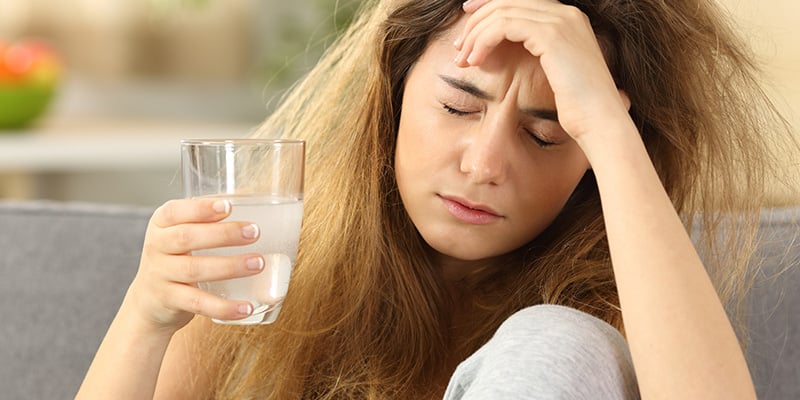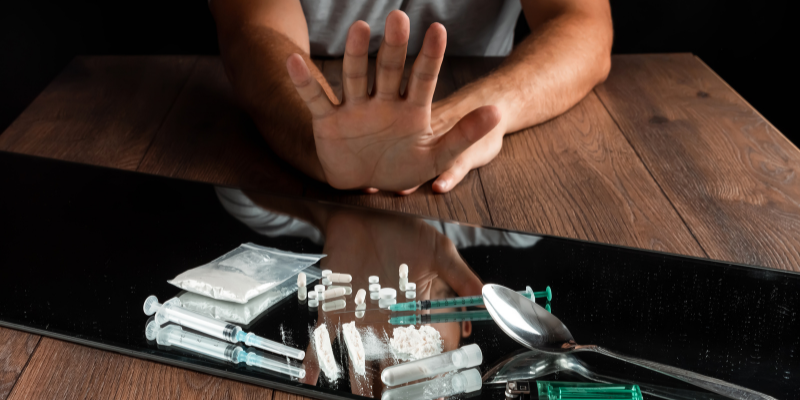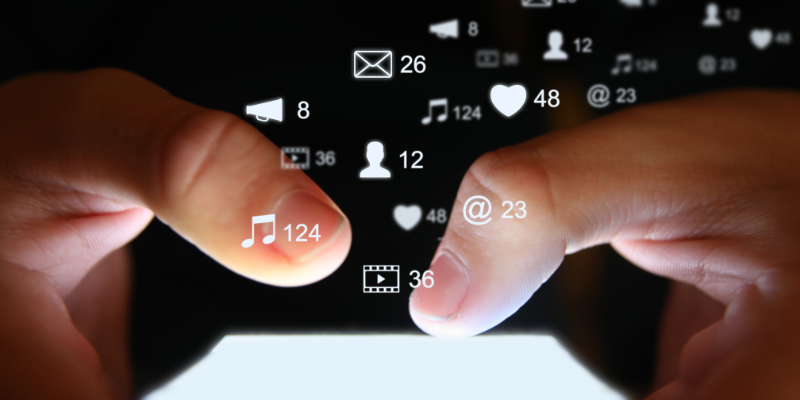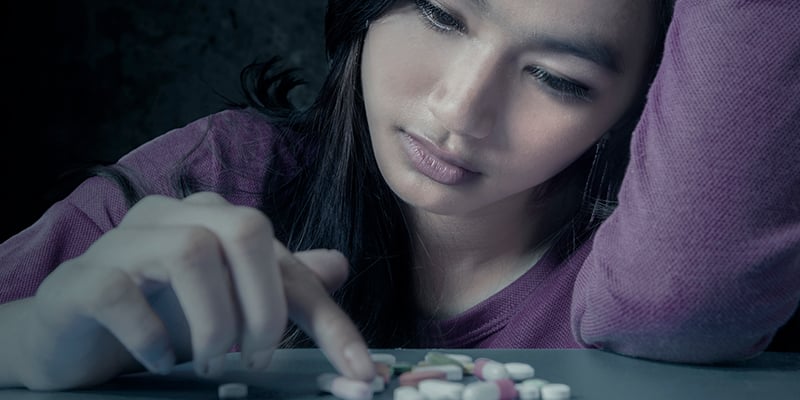
Everyone knows the telltale morning-after signs of having a few too many drinks: pounding headache, dry mouth, sensitivity to light, perhaps even a fuzzy memory. Ironically, alcohol, that substance so many people reach for to calm their jitters and boost their energy, usually turns against them as a “fun” night out meets the harsh light of the following day. And, in addition to the dreadful physical effects, there are mental effects, too—such as the phenomenon known as “hangxiety.”
A concept that combines hangover and anxiety, this morning-after panic can occur as a result of various alcohol-related side effects. Though many Americans consider drinking relatively harmless, alcohol interferes with a litany of bodily processes, harming cognitive function and diminishing physical and psychological well-being. Fortunately, scientists now understand more about why it’s so common to wake up the next morning with a heavy-duty bout of anxiety after a night of drinking.
While you can't change the past when it comes to regretful drinking choices, you can prevent future bouts of hangxiety by reducing or eliminating your alcohol intake. Click To Tweet5 WAYS ALCOHOL CREATES HANGXIETY
1. Alcohol disrupts sleep.
Whether falling asleep or passing out, many people consider alcohol a sleep aid, but that’s a misleading belief. True, alcohol is a depressant and can help someone fall asleep due to increased production of adenosine, a sleep-inducing chemical in the brain—but once this wears off, the person wakes up, often before a full night of rest is complete. In addition, alcohol blocks REM sleep, which is the most restorative type of sleep, so even drinkers who manage to sleep through the night are likely to wake up with a groggy, brain-fog feeling. They’re also more prone to sleep disturbances like snoring and sleep apnea. Ultimately, many studies have examined the significant negative impact that drinking has on sleep—and combined with hangover-type side effects, it’s a recipe for a grueling day ahead, which can skyrocket anxiety levels.
2. Drinking is erroneously used to decrease anxiety.
Those with social anxiety disorder have been linked to alcohol use disorder (AUD). This isn’t surprising since alcohol’s inhibition-lowering capabilities make it a common “solution” for tackling nerves associated with socializing. However, there is a price to be paid: One study that examined this link found that highly shy participants showed a “significant increase in anxiety” the day after drinking and that they may potentially experience an increased risk for AUD. Meanwhile, those who have generalized anxiety also often reach for alcohol to self-medicate, not realizing that this substance makes their symptoms even worse. It becomes a vicious cycle: Drinking to quell anxiety creates more anxiety, which leads to more alcohol consumption, which can lead to addiction.
3. Alcohol creates bodily imbalances.
When you flood your body with a toxic substance like alcohol, your body has to work hard to metabolize and eliminate it. At the same time, research notes that alcohol withdrawal in the aftermath of drinking causes dysregulation in the central nervous system, including two receptors in nerve cells that bind with neurotransmitters called gamma-aminobutyric acid (GABA) and glutamate, both of which are critical in regulating nerve cell activity. (GABA inhibits nerve cell activity, while glutamate stimulates it.) As the body tries to stabilize, the process creates “an unbalanced ‘overdrive’ state” and leads to withdrawal symptoms (even in non-addicted drinkers), which can include hangover effects like nausea, vomiting, shakiness, headaches, and anxiety.
4. Alcohol elevates stress hormone levels.
Though many people reach for booze as a way to forget their worries, in the long run, drinking actually creates more stress. One study that examined the relationship between alcohol consumption and cortisol (known as the stress hormone) secretion found that “an increased number of alcohol units consumed per week and heavy drinking are associated with increased cortisol levels,” with men showing a 3% increase in cortisol for every unit of alcohol consumed. Then, to make the problem even worse for drinkers, alcohol also lowers overall blood flow and activity in the brain, which diminishes one’s ability to cope with stress—another vicious cycle in action.
5. Alcohol has damaging effects on the brain.
Unfortunately, short-term feelings of anxiety are merely the tip of the iceberg when it comes to the damaging effects that drinking—especially in excess—has on the body, especially the brain. In addition to the many negative effects outlined above, alcohol abuse can contribute to mental illness, decrease the number of brain cells, and lead to brain damage. People who drink every day have smaller brains, and research shows that heavy alcohol use can alter the neurotransmitter and hormonal systems that are involved in mood and anxiety disorders. And, since alcohol interferes with the region of the brain involved with memory, binge drinking can lead to lapses in recall (including, in extreme cases, blackouts). Not fully remembering a night’s events only increases anxious feelings.
HOW TO COPE WITH HANGXIETY
The day after a drinking session, it might feel like an uphill battle to accomplish much of anything, but, as much as possible, it’s helpful to take nourishing steps to alleviate the physical and mental symptoms that may have reared their ugly heads overnight. Try these strategies to better regulate your body and mind after imbibing:
- Rehydrate and replenish. Drinking leads to dehydration, sometimes combined with poor food choices during drinking that exacerbates the problem. To fight these effects, drink coconut water, electrolyte-containing beverages, or plain water. And eat easily digested, bland foods; healthy fats like those found in salmon; fruits; and nausea-reducing ginger. Studies have shown that dehydration alone can negatively impact mood, so fueling your physical body is the first step to feeling better.
- Soothe the mind and nervous system. Try natural techniques like gentle exercise, yoga, mindfulness, breathing, or meditation to help calm anxiousness. Meditation was shown in one study to increase dopamine production for a feel-good effect, while deep-breathing exercises have been associated with a reduction in anxiety, depression, and stress. And, according to the American Psychological Association, mindfulness—essentially, paying attention to the present moment without judgment—reduces stress and anxiety while improving physical health.
- Rethink your relationship to alcohol. While you can’t change the past when it comes to regretful drinking choices, you can prevent future bouts of hangxiety by reducing or eliminating your alcohol intake. It’s especially important to nix alcohol when you already experience anxiety symptoms in your daily life or are exhibiting signs of addiction. While the CDC advises an upper limit of one drink per day for women and two for men, Amen Clinics has found in brain imaging studies that even so-called moderate amounts of alcohol are damaging to the brain. One serving per day can be detrimental to brain function, while brain SPECT scans of people who have more than three drinks per week look downright toxic. Do your body and brain a favor, and just say no!
Addictions, alcohol use disorders, anxiety, and other mental health issues can’t wait. At Amen Clinics, we’re here for you. We offer in-clinic brain scanning and appointments, as well as mental telehealth, clinical evaluations, and therapy for adults, teens, children, and couples. Find out more by speaking to a specialist today at 888-288-9834 or visit our contact page here.





Will damage to your brain from drinking improve if you stop completely. If so, how long does it take?
Comment by Michelle — January 23, 2023 @ 6:15 AM